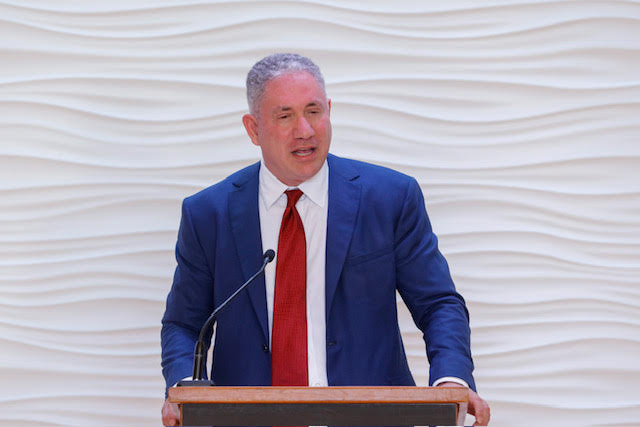In a world filled with uncertainty and constant change, building resilience has become an essential skill for achieving long-term wellness. Stuart Piltch, a well-known advocate for holistic health and personal growth, has created a blueprint for resilience that empowers individuals to not only cope with adversity but to thrive in the face of it. His wellness pathway integrates mind, body, and spirit, providing a comprehensive approach to health that fosters mental, emotional, and physical strength.
At the heart of Piltch’s blueprint is the understanding that resilience is a skill that can be cultivated, rather than an inherent trait. According to Piltch, resilience involves more than just enduring hardship; it’s about transforming challenges into opportunities for personal growth. By shifting how we respond to difficulties, we can unlock our potential to emerge stronger and more capable. The key to this transformation is adopting a mindset that embraces change and seeks solutions, even in the face of uncertainty.
Piltch’s wellness pathway starts with the cultivation of a growth-oriented mindset. He emphasizes the importance of reframing setbacks as temporary obstacles rather than permanent roadblocks. Resilient individuals view adversity as a natural part of life and a chance to learn and grow. By adopting this perspective, individuals can build emotional strength and mental clarity, allowing them to navigate difficult situations with greater ease. Piltch teaches that when we focus on solutions and the lessons we can learn from hardship, we create the mental resilience necessary to move forward, even when times are tough.
Another essential element of Stuart Piltch resilience blueprint is the practice of self-compassion. During challenging times, it’s easy to fall into the trap of self-criticism. However, Piltch believes that self-compassion is a vital tool for building resilience. Rather than berating oneself for mistakes or setbacks, resilient individuals treat themselves with kindness and understanding. Self-compassion allows us to acknowledge our emotions without judgment, helping us process and heal from difficult experiences. It also prevents burnout by encouraging individuals to take care of their emotional well-being, which ultimately enhances overall resilience.
Physical health plays a critical role in Piltch’s wellness pathway. A healthy body is the foundation for a resilient mind, and Piltch advocates for regular exercise, a balanced diet, and adequate rest as key components of well-being. These practices not only improve physical health but also have profound effects on mental and emotional resilience. Regular exercise boosts mood, reduces stress, and improves sleep quality, while proper nutrition supports cognitive function and energy levels. By prioritizing physical health, individuals create a strong foundation that supports their ability to cope with life’s challenges.
Finally, Stuart Piltch emphasizes the importance of strong social connections in fostering resilience. Humans are social creatures, and meaningful relationships are crucial for emotional well-being. Having a supportive network of friends, family, or a community can provide encouragement, perspective, and comfort during difficult times. Piltch encourages individuals to nurture their relationships and seek support when needed. Resilience is not about facing challenges alone; it’s about recognizing the strength in connection and allowing others to help you navigate life’s ups and downs.
Stuart Piltch’s Blueprint for Resilience offers a roadmap for achieving lasting wellness by focusing on a growth mindset, self-compassion, physical health, and strong social connections. By following this pathway, individuals can build the resilience necessary to thrive in a world that constantly presents new challenges. Piltch’s approach provides a holistic, actionable guide to living a healthier, more resilient life—empowering individuals to overcome adversity and embrace life with strength, clarity, and hope.
